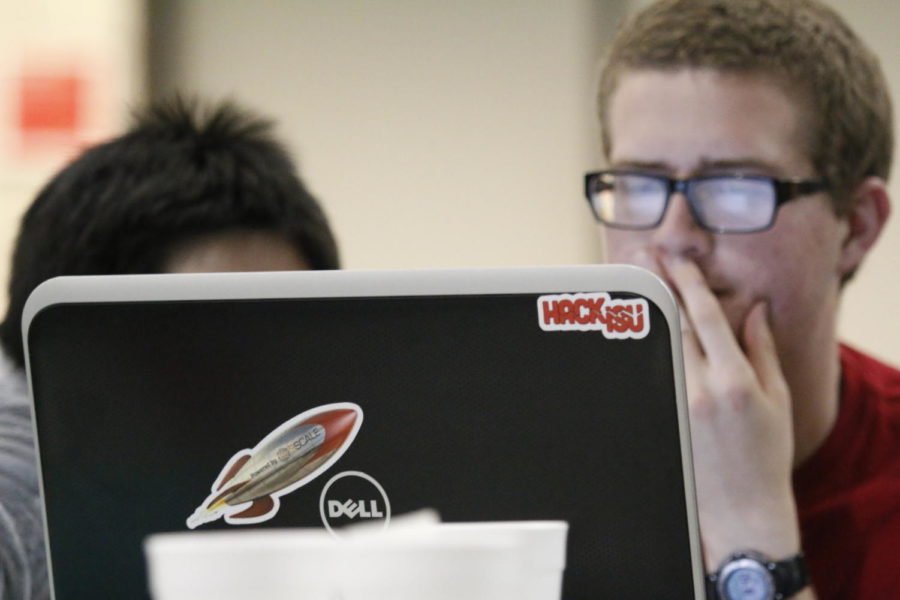ISU ‘hackathon’ takes over Howe Hall
September 15, 2014
It’s 4 a.m. and the last thing Erik Fetter wants to do is sleep.
Fetter, sophomore in computer engineering, spent 36 hours the past weekend hacking with more than 100 other students.
HackISU is part of an international competition that draws in aspiring programmers and professionals alike to create unique programs from ordinary devices.
The event, aptly referred to by participants as the “Hackathon,” gathered coders, programmers and designers from the area who worked toward demonstrating original websites, computer applications or hardware innovations.
“A lot of people come for different reasons,” said Thomas Moll, sophomore in computer engineering. “It’s really a community event because we are so inclusive in drawing in students from all levels of experience and all backgrounds, not just engineering majors.”
Participants were given electronics and software with which to work. Xbox consoles, Kinects, Myo motion sensors and coding programs allowed students to make creative, original products.
As the event spanned the weekend — from Sept. 12 to Sept. 14 — complementary breakfast, lunch, dinner and snacks were provided to students from HackISU’s sponsors.
“This year, we decided to open up in Iowa internationally with MLH,” Moll said. “They have been instrumental in providing us funding through sponsors, like Dell.”
While students were permitted to work alone, many collaborated in teams. The teams were then responsible for demonstrating the group’s final project to a panel of judges in competition for several of prizes, including a cash reward.
“Every year I participate in hackathons, I try to learn something new with others,” Fetter said. “It’s more of a networking event because you meet other hackers who want to make cool things as a team with you.”
In the early morning hours of Sept. 14, students could be heard tapping away at keyboards and sipping energy drinks in the nooks and crannies of Howe Hall as lines of code were being written and software was being cracked.
Anthony House, junior in software engineering, spent the last few hours of the competition collaborating on a new computer video game.
“As a team, we work on something called ‘Project Contingency,’” House said. “[Students across the Midwest and I] are aiming to launch a hacked, repurposed video game for computer play.”
House presented his portion of programming for Project Contingency’s video game before judges on the morning of Sept. 14 when HackISU ended. While it did not receive any awards, the concept received positive support and House intends to release his game next month.
At the event’s closing, event volunteers handled clean-up, restoring Howe Hall back to normal.
“It’s always a blast to get involved in every year and from my past experiences, I can tell it makes a greater networking event than it does a competition to make cool stuff,” Moll said.

















